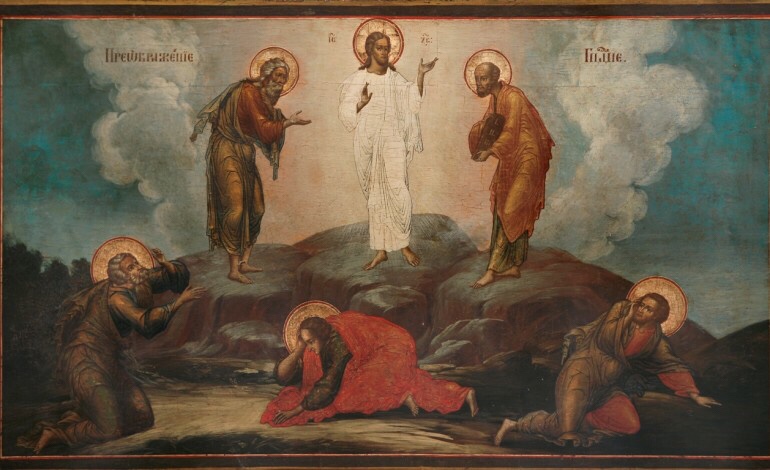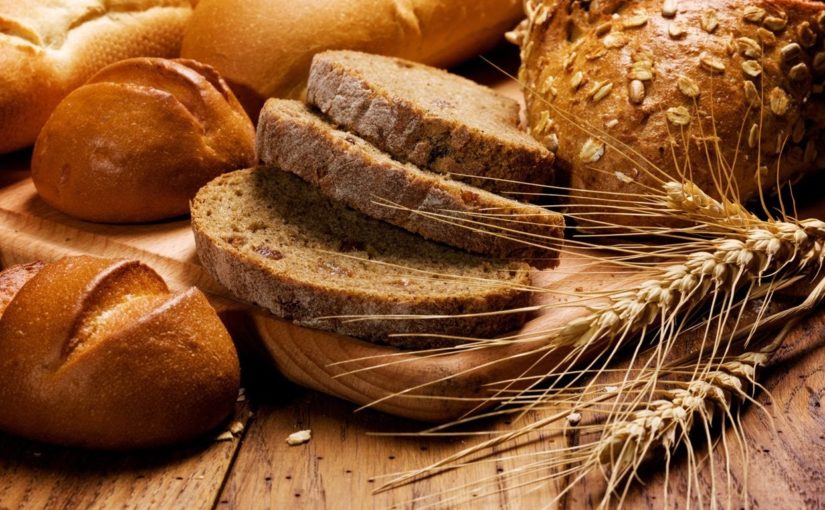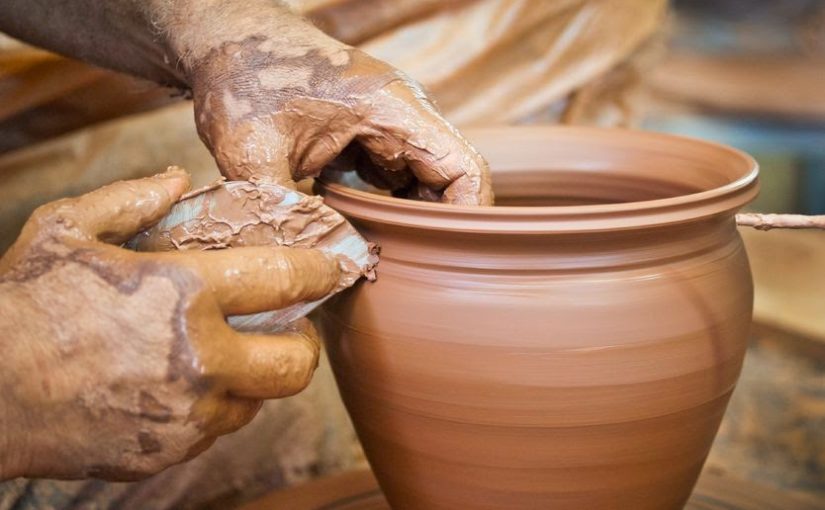You may have heard of Viaticum, which we generally think of as one’s last Communion. Indeed, the Church encourages us by precept of the Church to receive Holy Communion in our last moments, if at all possible. The word viaticum is Latin for “bread for the journey.” So in our last moments, when we set out on our journey to the life that is to come, we are fed with that Food that sustains us. It’s a commendable practice and I highly encourage it.
Today we see the Scriptural basis for viaticum, that bread for the journey. In the first reading, the prophet Elijah has had just about enough, thank you very much. Despite some successes in preaching the word of the Lord, he has felt that he is a failure. Today’s reading comes after Elijah, with God’s help, just defeated all the prophets of the false god Baal in a splendid display of pyrotechnics on Mount Carmel. It’s a wonderful story that you can find in chapter 18 of the first book of Kings, and your homework today is to go home and look it up! I promise, you’ll enjoy the story. Well after that outstanding success, one would expect Elijah to go about boasting of his victory. Instead, Jezebel, the king’s wife and the one who brought the prophets of Baal to Israel in the first place, pledges to take Elijah’s life. Today’s story, then, finds him sitting under a scraggly broom tree, which offered little if any shade, and praying for death. For him it would be better for the Lord to take his life than to die by Jezebel’s henchmen. The Lord ignores his prayer and instead twice makes him get up and eat bread that God himself provides, so that he would be strengthened for the journey. In the story that follows, Elijah will come quite face-to-face with God, and be refreshed to go on. But he can’t do that if he starves to death under the broom tree. Sometimes God does not give us what we ask for, but exactly what we need.
Our Gospel reading takes us back to Saint John’s “Bread of Life Discourse.” We usually read from the Gospel of Mark during this liturgical year, but since Mark is shorter than Matthew and Luke, we have a five-week opportunity during the summer to hear John’s Eucharistic Theology beautifully told in the sixth chapter of his Gospel. We began two weeks ago with the feeding of the multitudes; then last week the multitudes sought Jesus out so they could get more of the same and Jesus sets out to feed their spirits. At the end of last week’s Gospel, Jesus told them that Moses didn’t give them bread from heaven, but rather God did; and then he made a very bold claim: “I am the bread of life.” So this week, the people are angry with Jesus for that claim, for saying that he came down from heaven. They murmured because they knew his family, and surmised that he couldn’t have descended from heaven. They didn’t yet understand the depth of who Jesus was. They were so hungry that they didn’t realize that the finest spiritual banquet stood right before them.
The thing is, spiritual hunger is something we all face in one way or another. We all have very difficult journeys to face in our lives. Whether we’re feeling dejected and defeated like Elijah, or feeling cranky and irritable like the Ephesians, or whether we’re just feeling superior and murmuring like the Jews in today’s Gospel, spiritual hunger is something we all must face sometime in our lives. From time to time, we all discover in ourselves a hole that we try to fill with something. Maybe we try to fill that up with alcohol, or too much work, or too much ice cream, or the wrong kind of relationships, or whatever; and eventually we find that none of that fills up the hole in our lives. Soon we end up sitting under a scraggly old broom tree, wishing that God would take us now. If we’re honest, we’ve all been at that place at one time or another in our lives.
We disciples know that there is only one thing – or rather one person – that can fill up that emptiness. And that person is Jesus Christ. This Jesus knows our pains and sorrows and longs to be our Bread of Life, the only bread that can fill up that God-sized hole in our lives. We have to let him do that. But it’s not so easy for us to let God take over and do what he needs to do in us. We have to turn off the distractions around us, we have to stop trying to fill the hole with other things that never have any hope of satisfying us, and we have to turn to our Lord in trust that only he can give us strength for the journey. Jesus alone is the bread that came down from heaven, and only those who eat this bread will live forever, forever satisfied, forever strengthened. It is only this bread that will give us strength for the arduous journeys of our lives.
Because this Food is so important to us, because it is such a great sign of God’s presence in our lives, we should be all the more encouraged to receive the Eucharist frequently and faithfully. Certainly nothing other than sickness or death should deter us from gathering on Sunday to celebrate with the community and receive our Lord in Holy Communion. We should all think long and hard before we decide not to bring our families to Sunday Mass. Sometimes soccer, football, softball and other sports or activities become more important than weekly worship, as if Mass were just one option among many activities from which we may choose. Or maybe we decide to work at the office or around the house instead of coming to Church on Sunday, a clear violation of the third commandment. I realize that I may well be preaching to those who already know this, and I realize that it’s hard, especially for families, to get to Church at times, but this is way too important for any of us to miss. It is Jesus, the Bread of Life, who will lead us to heaven – the goal of all our lives and our most important journey, – and absolutely nothing and no one else will do that.
It all comes down to what we believe. If we believe that Jesus is the Bread of Life, then why on earth would we ever want to miss worship? If he is the only way to heaven, why would we think to separate ourselves from him? Our Church teaches us that this is not just a wafer of bread and a sip of wine that we are receiving; we believe that it is the very real presence of our Lord, his Body and Blood, Soul and Divinity, under the mere appearance of bread and wine. Because this is our Lord we are receiving, we should never allow anything to take its place. Because this is our Lord we are receiving, we must return to this Eucharist every week, every day if we are able, acknowledging the great and holy gift that He is to us.
We will come forward in a few minutes to receive this great gift around the Table of the Lord. As we continue our prayer today, let us remember the advice God gives to Elijah: “Get up and eat, else the journey will be too long for you!”




You must be logged in to post a comment.